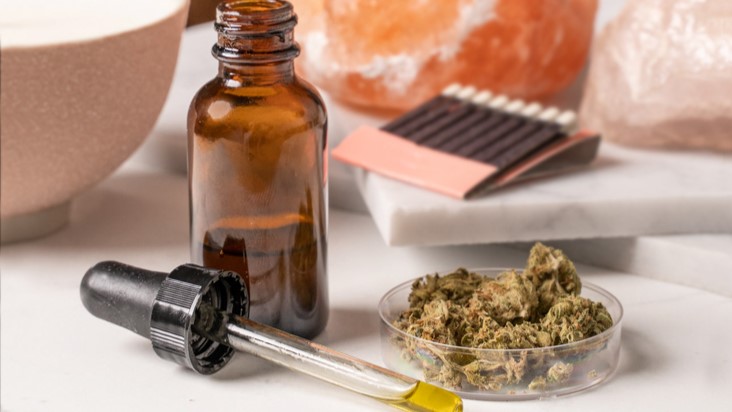A pilot study, led by Orygen, has found that CBD may be effective in reducing the severity of symptoms and impairment caused by chronic anxiety. Orygen is an Australian organisation offering support for young people’s mental health.
The Cannabidiol Youth Anxiety Pilot Study found that young people with treatment-resistant anxiety had an average 42.6 per cent reduction in their condition’s severity and impairment following 12 weeks of treatment with CBD.
The pilot study involved 31 participants aged 12–25 who were recruited from Orygen’s primary care services. The participants had a diagnosed anxiety disorder and had failed to show significant improvement in anxiety severity following at least five cognitive behavioural therapy (CBT) sessions.
The reduction in symptoms was observed on two different scales: a clinician-rated scale (Hamilton Anxiety Rating) which saw a 50.7 per cent reduction, and a self-rated scale (Overall Anxiety Severity and Impairment Scale) which saw a reduction of 42.6 per cent.
The study involved participants filling in a questionnaire on symptoms such as panic attacks, situational anxieties, worries and flashbacks.
The participants’ starting dose was one 200mg capsule of CBD per day, which was increased to 400mg after one week. Those who did not show significant improvement in anxiety symptoms had their dosage increased at 200mg increments up to 800mg per day.
All participants were offered biweekly CBT for 12 weeks.
The man who led the study, Professor Paul Amminger, expressed how this level of improvement was “remarkable”.
He said, “The young people had fewer panic attacks and could do things which they were previously unable to do like leave the house, go to school, participate in social situations, eat at restaurants, take public transport or attend appointments by themselves,”
“That’s an amazing change in the group which has had treatment-resistant, long-standing severe to very severe anxiety.”
Orygen started exploring cannabidiol as an anxiety treatment after it was found to be effective in reducing anxiety in adults.
Study co-investigator and Orygen Executive Director, Professor Patrick McGorry said the findings held promise for a significant number of young people.
He commented: “We’re seeing more and more young people experiencing anxiety – it’s the fasting growing form of mental ill-health in young people and we urgently need innovation in treatment. Cannabidiol is a promising treatment option which appears safe and effective. We need further research to confirm this and explore its value.”
Professor Amminger also said: “The problem with current frontline treatments for anxiety – CBT and selective serotonin reuptake inhibitor (SSRI) antidepressant drugs – is that they only work in about half of the people who try them.
“Anxiety disorders are very common so that leaves a large number of young people untreated, struggling with symptoms and developing secondary conditions, for instance, depression and substance use disorders.
“It’s important to stress that cannabidiol does not induce any significant side effects or lead to the emergence of any neurological or psychiatric manifestations.
He continued: “Our pilot study found that CBD not only helped to reduce anxiety symptoms but it was also very well tolerated – the most common side-effects were mild sedation and mild fatigue but that was at the time when doses were increased and usually went away after a couple of days.
“We did not see side-effects like suicidal thoughts, irritability or sleep problems, which are not uncommon in people taking SSRIs.”
Professor Amminger added: “An open-label pilot study is limited by its design. To see a treatment effect in the treatment-resistant group is encouraging, but it could still be a placebo effect.
“The next step is a randomised controlled trial, which is the gold standard to test a new intervention. Such a trial needs to be done in a much larger group – around 200 to 250 young people – to enable us to say with some certainty that there is, or is not, real treatment benefits and effects.”
The trial received financial and specialist technical support from the Lambert Initiative for Cannabinoid Therapeutics at the University of Sydney. Further research is required.
Article edited from: Cannabis Health News




